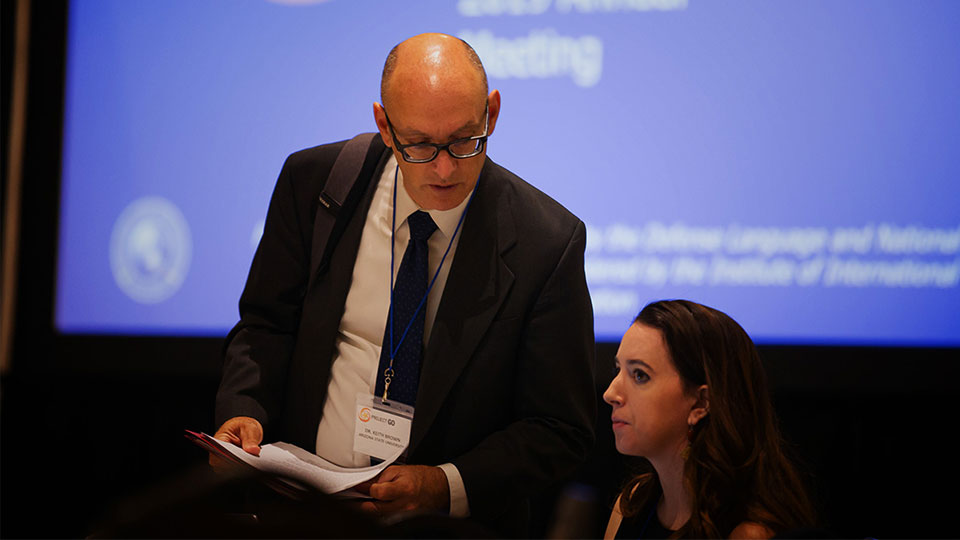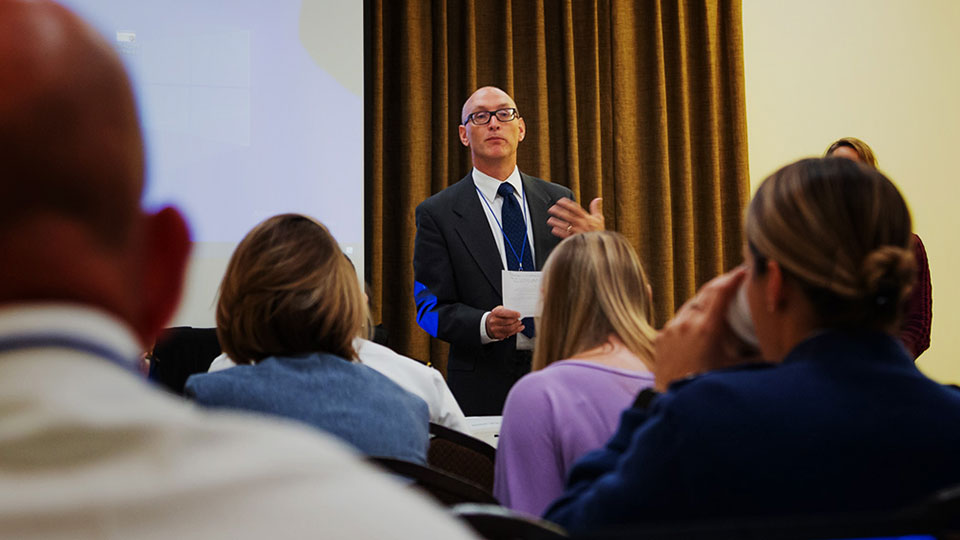
Welcome to The Melikian Center
As our mission statement indicates, the Center supports research, teaching and public programs that extend knowledge of the significance of Central and East Europe, the Caucasus, Central Asia and Russia in global affairs.
The Center teaches critical languages; informs public policy, business, and international relations; builds partnerships; and advances dialogue across national, disciplinary and ideological divisions.
Keith Brown - Director
Mission Statement:
As a National Resource Center at a leading research university, the Melikian Center supports research, teaching, and public programs that extend knowledge of the significance of Central and East Europe, the Caucasus, Central Asia and Russia in global affairs. The Center teaches critical languages; informs public policy, business, and international relations; and advances dialogue across national, disciplinary and ideological divisions.
To pursue this mission, the Center draws on the commitment of its core professional staff, the expertise of over ninety faculty and graduate student affiliates, and the resources of a world-class research University. In alignment with ASU’s nine design aspirations, the Melikian Center focuses in particular on enabling student success, engaging globally, and supporting problem-based cross-disciplinary collaborations. A flagship initiative is the Critical Languages Institute, which since 1991 has provided intensive summer instruction in less commonly taught East European and Eurasian languages for a diverse community of learners from across North America and beyond. CLI focuses on building proficiency and intercultural competence; all programs are taught by experienced native-speaker instructors, and all students beyond the introductory level get first-hand in-country experience.
Established as a consortium in 1984, the Melikian Center adopted its current name in late 2006, in recognition of the generous support of Gregory and Emma Melikian. Today, the Center draws on the support of its Advisory Board as well as a range of national grants to support faculty and student research, and to equip tomorrow’s global professionals with the foreign language and area studies expertise to advance cross-cultural understanding and international collaboration. Alumni of the Critical Languages Institute, as well as from ASU’s range of region-focused degree and certificate programs, have gone on to win Fulbright, Gilman, and Boren awards, and to pursue careers in federal service, higher education, business, and the NGO sector.
The Center also collaborates with partners at ASU and beyond to host digital and in-person public lectures, workshops, briefings, and film series on a range of pressing global issues. The Center also contributes to ASU’s, Tempe’s, and Arizona’s partnerships in the region, including CEU’s Global Teaching Fellowship, the fifty-year-long sister city relationship between Tempe and Skopje, North Macedonia; and the State Partnership program between Kazakhstan and Arizona’s National Guard.
Since the formal dissolution of the Soviet Union in December 1991, U.S. perceptions of Russia, Eurasia, and East Europe have evolved slowly, while this region’s economic, cultural and geopolitical significance has dramatically shifted--most dramatically with Russia's direct military attacks on sovereign Ukraine since 2014, which since the major escalation in February 2022 has created 6 million Ukrainian refugees and inflicted damage that will cost more than $500 billion to repair. Through their professional commitment, the Melikian Center’s world-class faculty affiliates, and dedicated CLI instructional team, continue to offer insight and to combat prejudice and disinformation in and on this critical region of the world. Whether you are curious, puzzled, or passionate, we hope you’ll join us.
Why Russia and East Europe?
Between 1945 and 1991, the Soviet Union (USSR) was the strongest military rival to the United States. Led by Russia, the USSR offered a radically different economic and political system, which claimed to empower ordinary workers and raise people out of poverty.
The promise of communism polarized societies around the world; it was met with the strongest opposition in the United States, where the very word continues to be used as a potent weapon in domestic politics.
When the Soviet Union dissolved in 1991, some in the West saw this as a victory for capitalism and anticipated that the forces of globalization would quickly transform economic, political, and social systems in the region. Western governments and companies now recognize that history, culture, and geopolitics shape the paths taken by the thirty sovereign states that have emerged from the Soviet Union, Yugoslavia, and the Warsaw Pact.
In Eastern Europe, as of 2020, the three Baltic States (Latvia, Lithuania, Estonia) along with Poland, Hungary, Czechia, Slovakia, Slovenia, Romania, Bulgaria, and Croatia are now full members of the European Union. Albania, Montenegro, and North Macedonia have joined NATO. But when Ukraine sought closer ties with Western security and economic organizations in 2014, Russia intervened. The conflict had a far-reaching impact, including US sanctions against Russia.

In Central Asia, meanwhile, globalization has impacted different countries differently.
Soviet-era connections with Russia mean that many citizens from the sovereign states of Kazakhstan, Tajikistan, Uzbekistan, the Kyrgyz Republic, and Turkmenistan still travel to Moscow and other major cities as migrant laborers. China's growing energy needs, and willingness to invest in transportation networks, have led to closer ties, especially for Turkmenistan. Internal ethnic, religious, and linguistic diversity--especially in the Fergana Valley where Uzbekistan, Tajikistan, and the Kyrgyz Republic meet--raises the potential for friction or conflict within these countries, especially as secular governments grapple with religious extremism.
Finally, in the Caucasus region, where the former Soviet Union bordered Iran and Turkey, conflicts over territory and nationhood persist. As the Soviet Republics of Georgia, Armenia and Azerbaijan became independent countries, some regions attempted to secede and thus preserve or gain local autonomy. The patchwork of unresolved and disputed claims produced the Nagorno-Karabakh war between Armenia and Azerbaijan (with its second act in Summer 2020), and also fed the 2008 war between Russia and Georgia, which began in the breakaway Russian-backed region of South Ossetia.

The region thus offers ambitious and curious students tremendous opportunity to examine pressing global issues—including energy politics, ethnonational conflict, great power rivalries, and human rights—in their local contexts.
Whether by pursuing ASU's certificate in Russian and East European Studies, studying a less commonly taught language identified as critical by the US government, or working closely with the Center's faculty on research as an undergraduate fellow, you can gain skills and knowledge that have helped former ASU students win prestigious scholarships (including Boren, Fulbright, and Gilman awards) and launch successful globally-oriented careers.
Through their professional commitment, the Melikian Center’s world-class faculty affiliates, and dedicated CLI instructional team, continue to offer insight and to combat prejudice and disinformation in and on this critical region of the world.
Whether you are curious, puzzled, or passionate, we hope you’ll join us.




